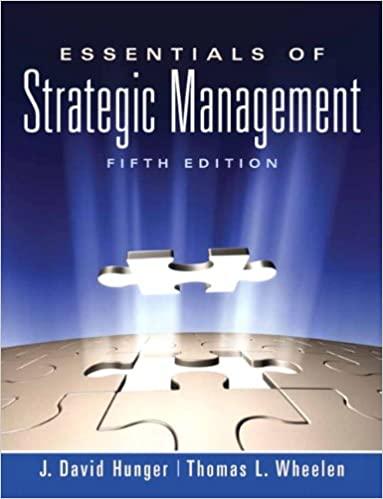Question
Q1. Should a new training scheme be implemented? Q2. How should the new training scheme be financed? Q3. Should the firm try to retain its
Q1. Should a new training scheme be implemented?
Q2. How should the new training scheme be financed?
Q3. Should the firm try to retain its workers or not?
Q4. Answers to the above questions depend on whether the firm's robots are unique to the firm or shared with competitors?
A durable goods manufacturer (Tesla!?) has bought new machines that use the most modern robotic technology. Few workers in the current workforce have the requisite skill to operate the new equipment. The firm is considering a new training program to bring the workers up to speed. The issue is whether the program should be instituted, and, if so, how it should be financed. A meeting is held to discuss the issue. Excerpts below...
CLARK: There is no doubt we need to train these people. Without training, we are wasting a valuable resource! We have to make our people effective at operating these machines or we might as well write off the investment in robotics right now.
JULIE: You're right about that. The way I see it is that our competitors will benefit from the training expenditures. They'll just steal our staff once we get them trained and then where will we be?? We train the workers and our rivals will get to enjoy the benefits of their training without bearing the costs. I've seen this happen before. The innovator comes in, trains the people, and the new kid on the block picks off the best people.
MAX: Well, we could pay them more. That will keep them with us. After all, if they are more productive, we should share the gains with them. I think that is the best way to get more productive as a company anyway.
ANISHA: Max is always worried about welfare. If it were up to him all the workers would earn the same as the CEO! We've got to worry about shareholders!!
MAX: I'm worried because we have to be. If we ignore these issues, it will cost us in the long run. It's short-sighted to train workers and then let them be picked off by the competition just because we are too stingy to pay them what they deserve, Anisha.
ROBIN: How do we know our competitors are even going to want them? They're going to use different robots and for different things. We shouldn't make too many assumptions. And what if they don't even follow our lead into robotics?
CLAIRE: Maybe. But we can't count on that. Is there some way we can tie them to the firm? We can't control them, so we need to get them to stay because they want to....
CLARK: I don't want to muddy the waters, but an issue that we've ignored is that we may actually want to lose some of our workers. First, the new robots mean we need fewer workers. Second, some of the current workforce may not have the skills the robots need. Others may not want to do it. I mean, not to be ageist, but they're too old for homework!!
ANISHA: That's a good point. We may actually want to pay some of the workers to leave. We'll come out better if we let some of them go.
Step by Step Solution
There are 3 Steps involved in it
Step: 1

Get Instant Access to Expert-Tailored Solutions
See step-by-step solutions with expert insights and AI powered tools for academic success
Step: 2

Step: 3

Ace Your Homework with AI
Get the answers you need in no time with our AI-driven, step-by-step assistance
Get Started


